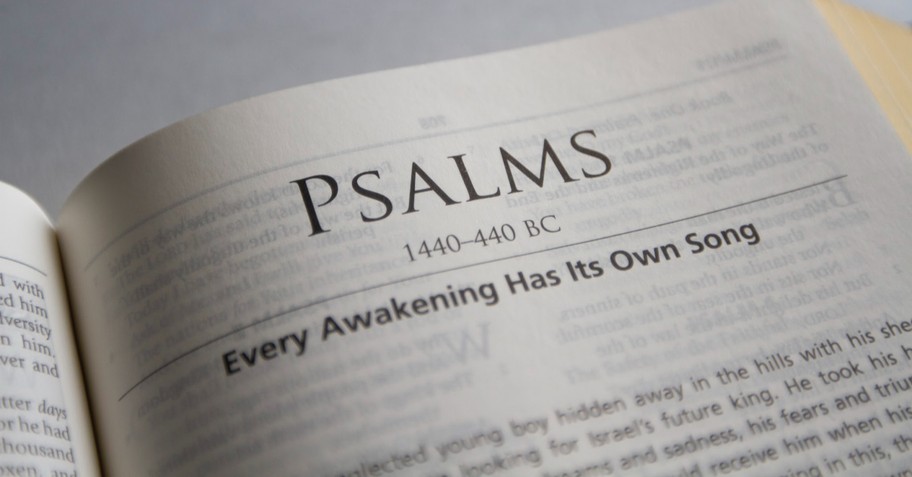Part of living life as a modern adult includes making important financial decisions, some of which can have long-term ramifications for an individual. The choice to take on debt can have positive and negative ramifications in an individual’s life.
Debt is a financial situation where someone borrows money in order to make a purchase in the present because they cannot currently afford it without assistance; the money has to be paid back later to the lender, usually with interest, or additional cost, added to the total borrowed.
Modern life puts people in a place where many feel they must take on debt, but the Bible cautions people about this. Debt means an individual is not free to make all their decisions autonomously, because they owe money to someone else. It also means people have difficulty saving, and much of their money is not their own while they pay off the debt. While biblically, there is no overt ban of taking on debt, it is discouraged so the believer can make decisions based on God’s will, and not on owing another person money.
Photo credit: ©Getty Images/Stas_V

What Does the Bible Say about Debt?
The Bible has much to say about both the practical and the spiritual. While debt may seem like it is only a practical subject, the Word of God talks about financial and spiritual debt. When it comes to owing other people money, the Bible does not condone it, and often warns people about going into debt.
During the time of the return from exile in Babylon, the book of Nehemiah documents the problems that arose when the Hebrews took on debt en masse. “Now our flesh is as the flesh of our brothers, our children are as their children. Yet we are forcing our sons and our daughters to be slaves, and some of our daughters have already been enslaved, but it is not in our power to help it, for other men have our fields and our vineyards” (Nehemiah 5:5). Because they owed others money, they and their children had to work, not to care for themselves, just to pay off the debt. Individual autonomy is undermined by debt because the person’s time, money, and labor are no longer their own, but the person who lent them money.
Sin, and the need for people to have a Savior, is often compared to debt. Even in the Lord’s prayer, Jesus taught His disciples to pray, “...and forgive us our debts…” (Matthew 6:12a). Most translations use this word, though others may say trespasses or sin. Just like debt binds people to someone else as long as they are in debt, sin keeps people bound to itself, and they are trapped in it.
Photo credit: Unsplash/Ben White

Key Bible Verses about Debt
There are key passages and several important verses that address debt, and the way it influences the lives of those who both take on and benefit from it. The Bible also addresses how to morally handle one’s debt. Many of these verses come from two of the books about wisdom, Psalms and Proverbs.
Psalm 37:21 “The wicked borrow and do not repay, but the righteous give generously.”
Romans 13:8 “Pay to all what is owed to them: taxes to whom taxes are owed, revenue to whom revenue is owed, respect to whom respect is owed, honor to whom honor is owed.”
Proverbs 22:26-27 Be not one of those who give pledged, who put up security for debts. If you have nothing with which to pay, why should your bed be taken from under you?”
Proverbs 22:7 “The rich rules over the poor, and the borrower is the slave of the lender.”
Matthew 6:24 “No one can serve two masters, for either he will hate the one and love the other, or he will be devoted to the one and despise the other. You cannot serve God and money.”
Proverbs 11:15 “Whoever puts up security for a stranger will surely suffer harm, but he who hates striking hands in pledge is secure.”
Luke 12:59 “I tell you, you will never get out until you have paid the very last penny.”
Ecclesiastes 5:10 “He who loves money will not be satisfied with money, nor he who loves wealth with his income; this also is vanity.”
Proverbs 17:18 “One who lacks sense gives a pledge and puts up security in the presence of his neighbor.”
Is It a Sin to Be in Debt?
Being in debt as a state of being is not overtly a sin, but it can lead to bad decisions. Taking out a mortgage is not sinful. Using a student loan to go to college is not inherently a wicked choice. However, being uninformed about how hard it is to pay off these large debts often results in people taking out loans for thousands of dollars, and paying them back for decades. They have to give up important experiences, delay pursuing serious relationships, or wind up unprepared for financial downturns and hardships – even going bankrupt – because they cannot pay their loans back.
Some people turn to desperate behavior when they face the possibility of losing everything due to overwhelming debt. They lie, cheat, steal, commit fraud, and other actions they may never have been willing to take had they not made certain financial choices. The taking on of debt itself is not a sin, but it can lead to sin. Debt taken in order to support a lifestyle, taking out a loan to pay for an expensive piece of jewelry or putting designer clothes on a credit card for example, is a byproduct of vanity, which is a sin.
Photo credit: ©SparrowStock

Why Should We Be Neither a Lender Nor a Borrower?
One of the famous quotes about debt that is often cited as colloquial wisdom comes from William Shakespeare’s Hamlet, “Neither a borrower nor a lender be.” The line is said by the sometimes wise and sometimes foolish character Polonius to his son, following it up with the axiom, “For loan oft loses both itself and friend.”
The sentiment has its roots in a passage in the Bible. Polonius warns not to loan money because the debts would probably not be repaid, and whether one is the loaner or the borrower, the relationship will probably be poisoned by the exchange of money. The idea comes most directly from the Proverbs, “...the borrower is the slave of the lender” (Proverbs 22:7b).
Another important verse Shakespeare drew from is in Deuteronomy, where Moses commanded the Israelites, “You shall not charge interest on loans to your brother, interest on money, interest on food, interest on anything that is lent for interest. You may charge a foreigner interest, but you may not charge your brother interest, that the Lord your God may bless you in all that you undertake in the land that you are entering to take possession of it” (Deuteronomy 23:19-20). God did not want the Israelites charging one another exploitative interest and profiting off the hardships of someone else. In fact, every seven years - known as the Year of Jubilee - debts were cancelled.
When considering how this idea applies to Christians today, believers should treat other Christians as brothers and sisters. They should also treat non-believers with the love of God, and avoid exploiting, but have the wisdom not to be exploited. In fact, the Bible says, “But love your enemies, and do good, and lend, expecting nothing in return, and your reward will be great, and you will be sons of the Most High, for he is kind to the ungrateful and the evil” (Luke 6:35). Christians should give generously, not treating it as a loan that must be repaid, but as a gift as if it were to the Lord. However, we are warned not to be foolish with our giving. To avoid being a slave to worldly whims, Christians should not borrow money if they do not have to, so they are free to obey God, rather than their money-lender.
Photo credit: ©Getty Images/Thitaree Sarmkasat

How Can Christians Escape Debt, or Avoid Falling into It?
Christians should take seriously the idea of avoiding debt whenever possible. If a credit card is not necessary, do not apply for one. It is becoming increasingly easy to pursue affordable higher education through trade school, certificate programs, and online degrees, meaning that taking out a student loan is not always the smart decision.
Following the wisdom from the Proverbs to live modestly, and within the income with which God is blessing an individual will go far to avoid financial difficulties. When faced with a situation where it seems necessary to take out a loan, pray about it, and seek peace and guidance from the Lord. Ultimately, the money Christians have belongs to God, and going to Him for guidance about how to use it will serve them best.
Sources
Alcorn, Randy. Money, Possessions, and Eternity. Carol Stream: Tyndale House Publishers, Inc., 2003.
Chirichigno, Gregory. Debt-slavery in Israel and the Ancient Near East. New York: Bloomsbury USA Academic, 1993.
Eubank, Nathan. Wages of Cross-Bearing and the Debt of Sin. Boston: Walter de Grutyer, 2013.
Shakespeare, William. Hamlet. Mineola: Dover Publications, 1992.
Related articles
What the Bible Actually Says about Money
Is Money Really the Root of All Evil?
Are We Like the Unmerciful Servant in Jesus' Parable About Forgiven Debt?
Photo credit: ©Getty Images/DMEPhotography
Originally published October 22, 2021.







